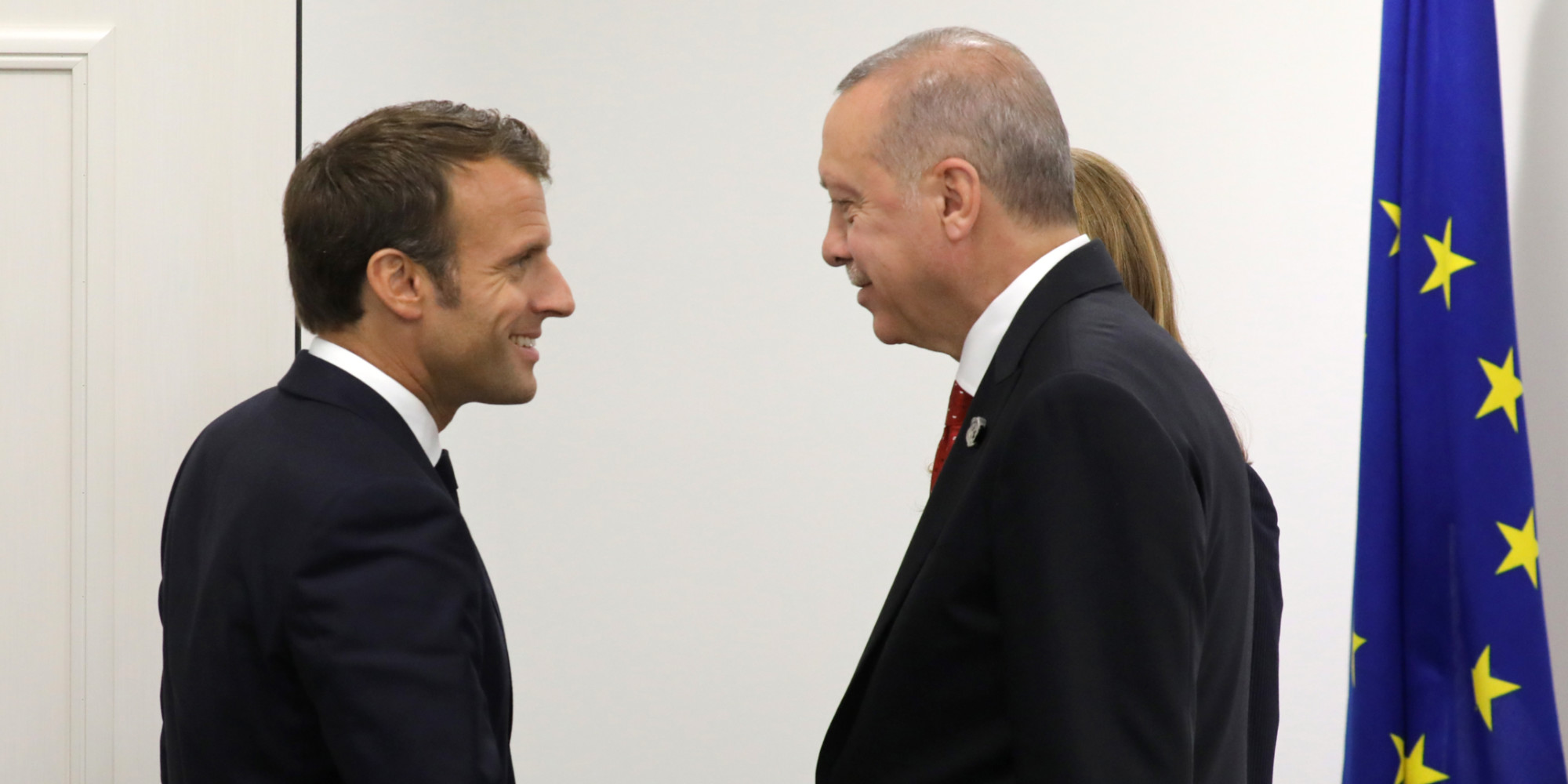DECRYPTION
France behaves "like a kingpin" in the Mediterranean. Here are the accusations made by the head of Turkish diplomacy, Mevlüt Cavusoglu, after the strengthening of the French military presence in this area where Turkey and Greece oppose a disputed maritime area. These strong statements come in a context of growing tensions between Ankara and Paris. Eastern Mediterranean, Libya, Syria… The two powers continue to disagree on many subjects. We explain why.
France defends Greece
France reinforced its military presence in the eastern Mediterranean on Thursday with the "temporary" deployment of two Rafale fighters in Crete and two warships (the frigate La Fayette and the helicopter carrier Tonnerre, en route to Beirut), in support to Greece, against Turkey. In this disputed area, rich in hydrocarbon deposits, Ankara and Athens, who disagree on their maritime borders, regularly clash. On Monday, tensions escalated further when Turkish President Recep Tayyip Erdogan announced the dispatch of a seismic research vessel, "Oruç Reis", used to find oil, escorted by military vessels.
>> READ ALSO - Greece-Turkey tensions: Morano calls on Macron to be "firmer" with Erdogan
Greece has denounced illegal research in its waters and demanded an emergency EU summit on the subject. Emmanuel Macron deplored on Wednesday "the tensions caused by Turkey's unilateral decisions on oil exploration". He also called for "greater consultation" between Ankara and Athens under German mediation. The French military deployment was then decided to mark its desire to "ensure respect for international law".
"France, in particular, should stop taking measures that increase tensions. They will get nothing by behaving like big boys," Turkish foreign minister Mevlüt Cavusoglu reacted on Friday at a press conference with its Swiss counterpart in Geneva.
Reciprocal attacks
Between the two countries, condemnations are recurrent. Paris demanded on Thursday that "all light" be shed on a Turkish drone strike in which two senior Iraqi officers were killed on Tuesday. The Turkish army, which has been carrying out airstrikes against the Kurdistan Workers' Party (PKK, Kurdish opposition in Turkey) for weeks, believes it is within its rights in the face of what it considers a "terrorist" organization.
Recep Tayyip Erdogan had previously charged Emmanuel Macron, after his publicized trip to Beirut, accusing him of wanting to "reestablish colonial order" in Lebanon and accusing him of "putting on a show in front of the cameras".
Turkey's influence in Libya
More broadly, the growing influence of Turkey in the Middle East is leading to tensions with France. The two countries are opposed in particular on the subject of Libya, in chaos since 2011 and the fall of the regime of Muammar Gaddafi. The country is divided in two between the unity government (GNA) recognized by the UN and supported by Ankara militarily, and Marshal Haftar, supported by Egypt, Saudi Arabia or even Russia.
Emmanuel Macron recently denounced Ankara's "criminal responsibility" in the Libyan conflict and regularly points to interference. Turkey is notably accused of violating the embargo on the sale of arms in Libya. These weapons would be intended for the GNA, but also for Syrian jihadists that Ankara sends to fight against the troops of Haftar.
In June, tension was at its height when France criticized the Turkish navy for threatening one of its warships during a mission to enforce the arms embargo on Libya. She also called NATO to witness this incident. The President of the Republic had again judged the alliance in a state of "brain death", failing to prevent such incidents between its members.
>> READ ALSO - NATO ready to support a ceasefire in Syria, "but we need the support of our allies"
The Syrian and migration issue
In Syria, Turkish influence also embarrasses the West. Turkey has carried out three incursions since 2016 to combat the Islamic State group and the Kurdish militia of the People's Protection Units (YPG). Last October, after the withdrawal of American troops, Ankara went on the offensive against Kurdish positions, air and land, in the north of the country plunged into civil war since 2011. The attack went badly on the side of France and of the international coalition, the Kurds being strong allies in the fight against Daesh. Paris had thus "strongly condemned" the attitude of Turkey.
Finally, Recep Tayyip Erdogan regularly puts pressure on Europe, using the migration issue. Having become "guardian of Europe", since a pact with Brussels in 2016, Turkey has already opened its borders, leading to the start of a migratory crisis, in exchange for support on the Syrian situation.

